Analytical skills Normal Worksheets for Ages 4-5
6 filtered results
-
From - To
Enhance your child's analytical abilities with our engaging Normal Worksheets designed for ages 4-5! Our comprehensive collection features a variety of fun activities that encourage critical thinking, problem-solving, and logical reasoning. Each worksheet is thoughtfully crafted to stimulate young minds, helping them develop essential skills while enjoying learning. From simple pattern recognition to shape sorting and sequencing exercises, your child will explore analytical concepts in a playful way. Perfect for home use or classroom settings, these worksheets are designed to empower young learners and build a strong foundation for future academic success. Discover the joy of learning with our analytical skills worksheets today!
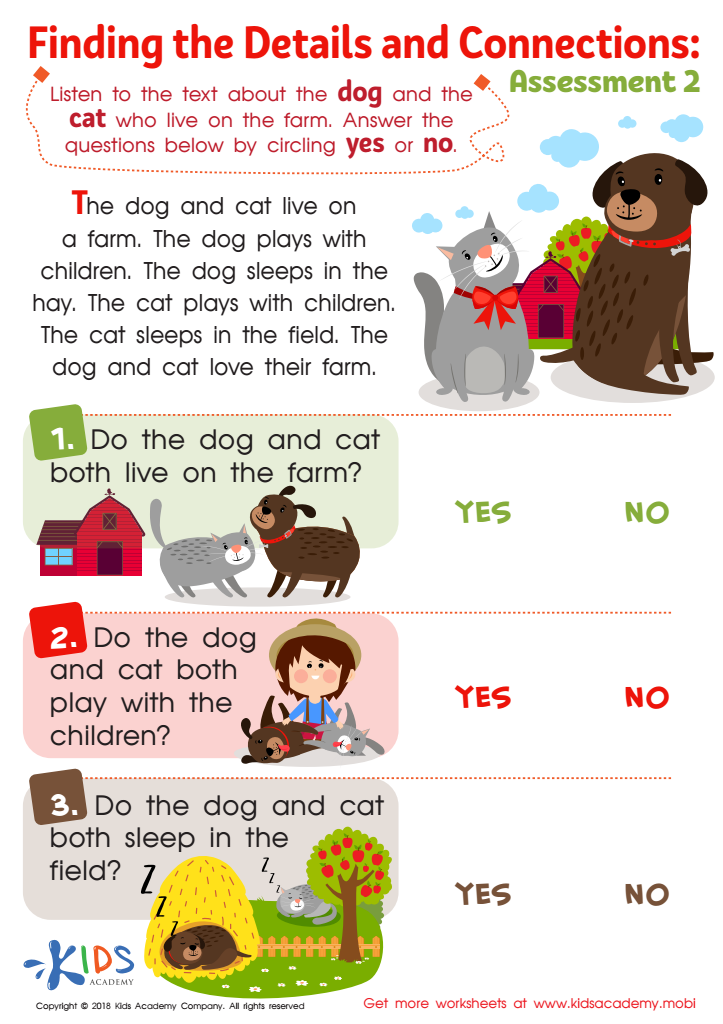

Finding the Details and Connections: Assessment 2 Worksheet
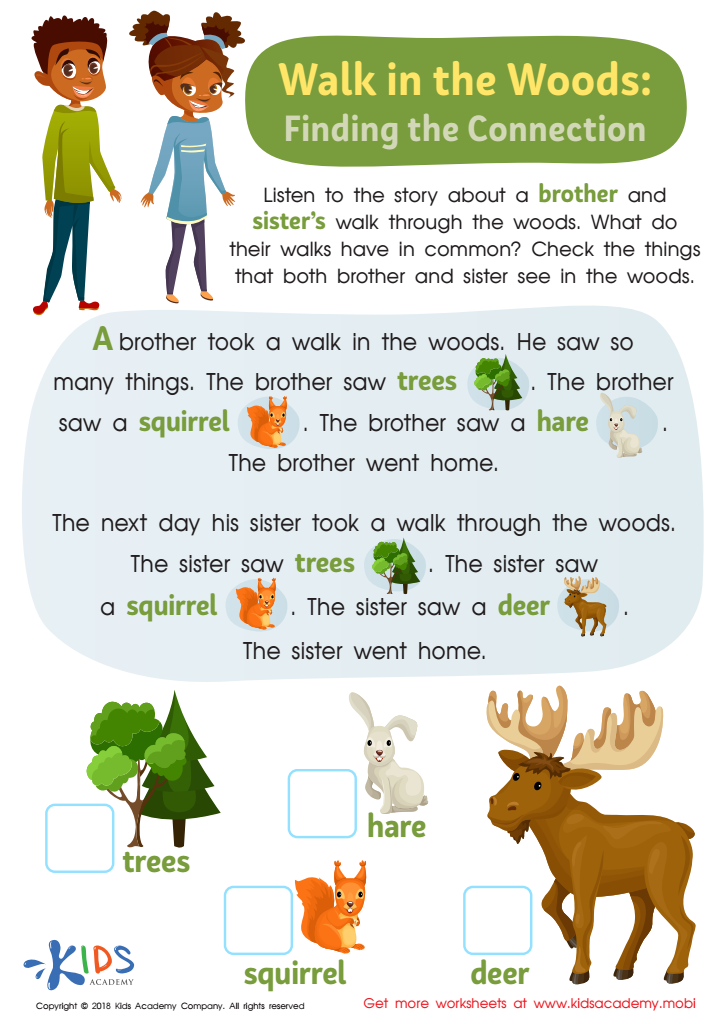

Walk In the Woods: Finding Connections Worksheet
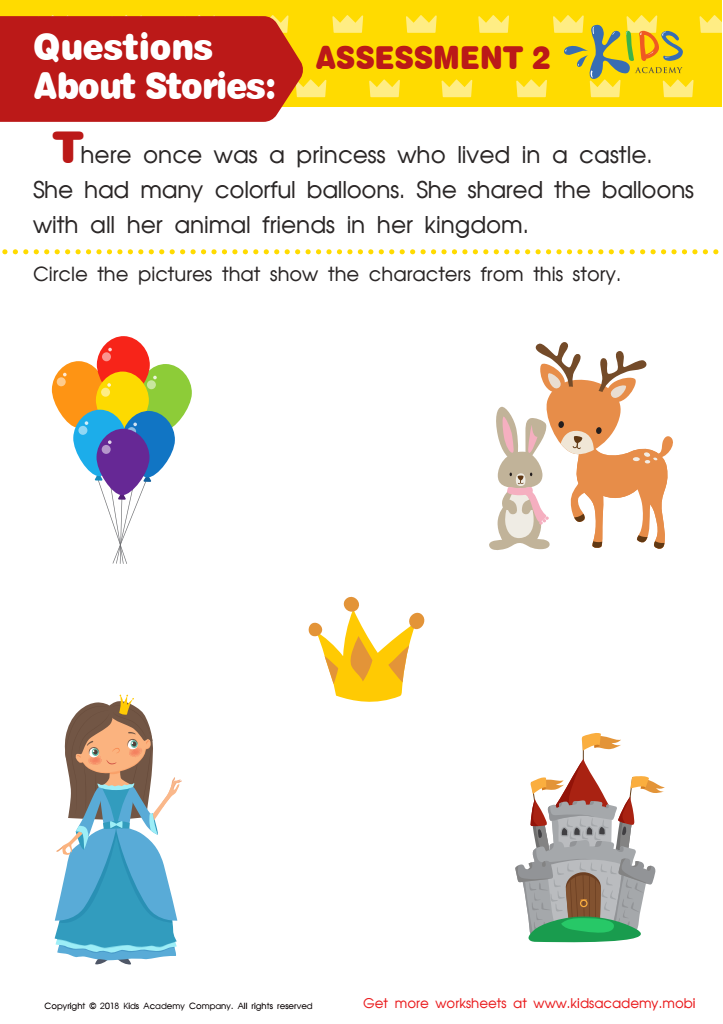

Questions About Stories: Assessment 2 Worksheet
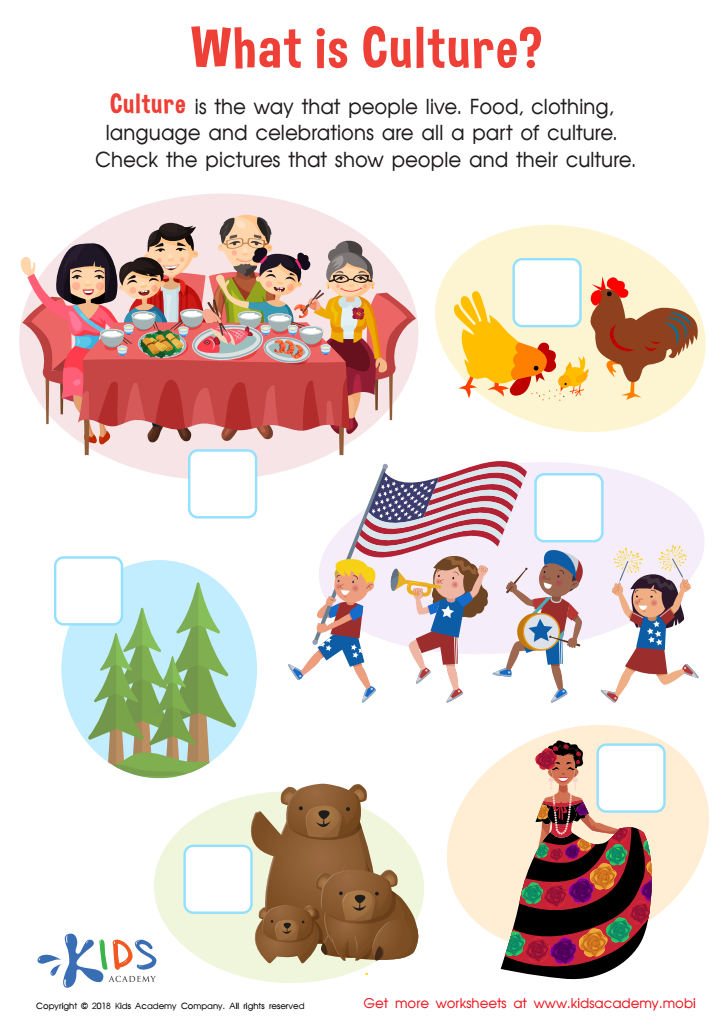

What Is Culture? Worksheet
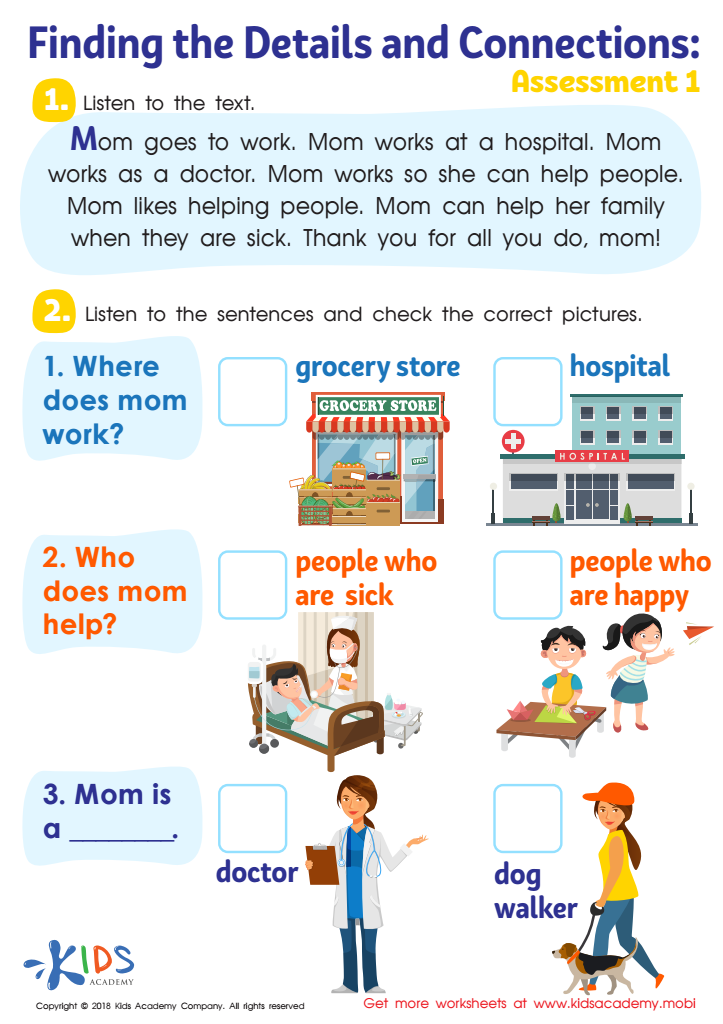

Finding the Details and Connections: Assessment 1 Worksheet
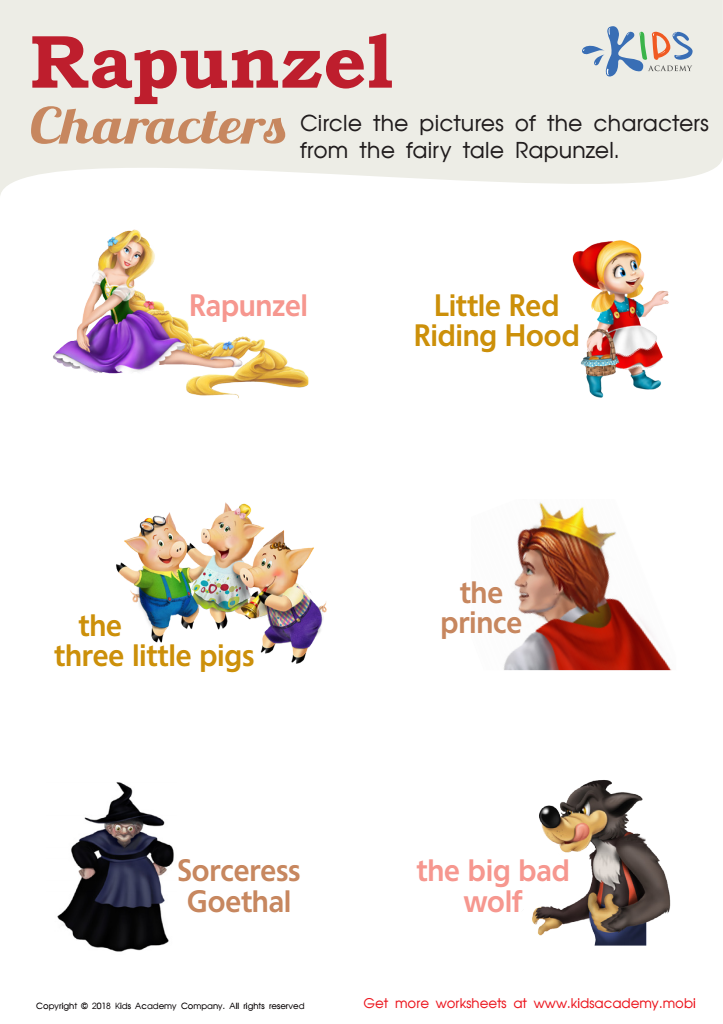

Rapunzel Characters Worksheet
Analytical skills are crucial for children aged 4-5, as they lay the foundation for critical thinking, problem-solving, and decision-making abilities that are vital in their lifelong learning journey. At this age, children are naturally curious, and nurturing their analytical skills can enhance their ability to make sense of the world around them. When parents and teachers focus on developing these skills, they empower children to observe, question, and engage deeply with their environment.
Early analytical skills support literacy and numeracy development, enabling children to identify patterns, make inferences, and draw conclusions. For example, recognizing the relationships between objects, characters in a story, or numbers fosters cognitive growth and sparks creativity. Furthermore, honing these skills encourages children to approach challenges methodically, fostering resilience when facing obstacles.
Moreover, strong analytical skills contribute to social and emotional development; children learn to navigate social interactions, understand different perspectives, and resolve conflicts. Parents and teachers who actively promote these abilities create an enriching learning environment that prepares children for future academic success and personal growth, ensuring they become capable adults who can think critically and adapt to new scenarios with confidence. Investing in analytical skills at a young age is, therefore, essential for holistic development.

 Assign to My Students
Assign to My Students

















